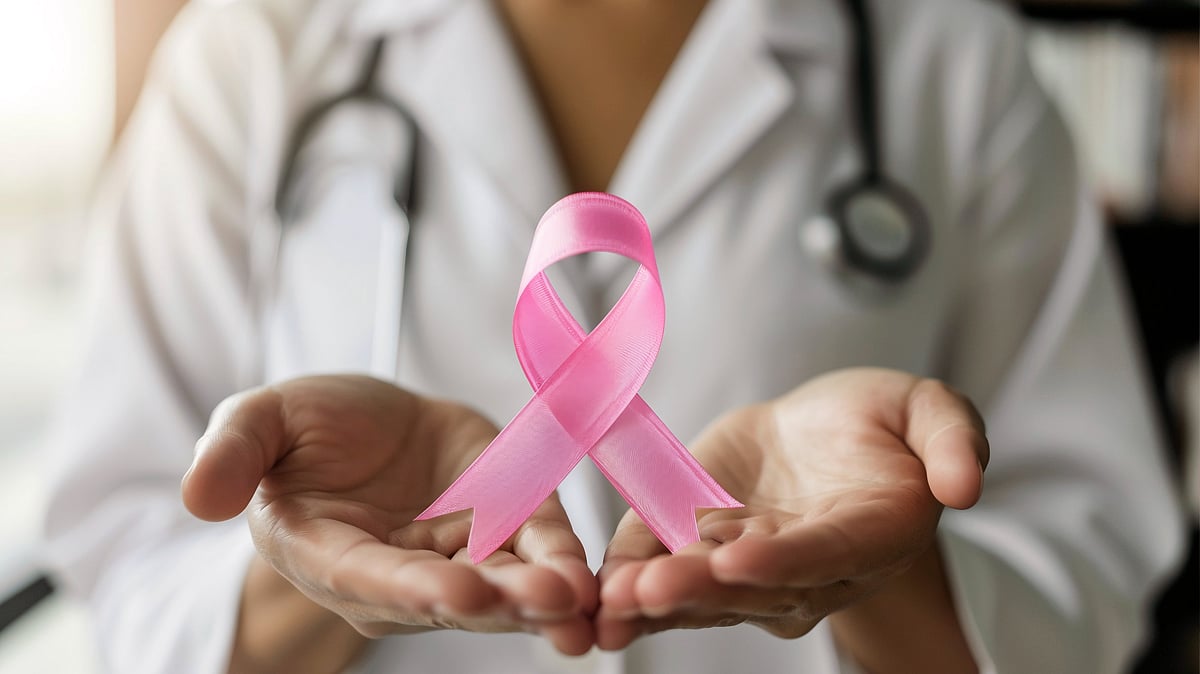From Diagnosis To Recovery: Navigating The Breast Cancer Journey
Breast cancer has emerged as the most prevalent form of cancer affecting women worldwide

Pic: Freepik
The recent revelation of actress Hina Khan’s diagnosis of stage three cancer has sent shockwaves in the entertainment industry and her fans.
Breast cancer has emerged as the most prevalent form of cancer affecting women worldwide, a trend mirrored in India. The rising incidence of this disease underscores the importance of early detection and effective treatment strategies. Empowering women with knowledge about breast cancer risk factors, symptoms, and screening guidelines is crucial. Education campaigns promote proactive health-seeking behaviours and encourage women to advocate for their health within their communities and healthcare systems.
Universal risk factor
Unlike in the past, breast cancer now affects women across all age groups—from young adults to the elderly. This shift necessitates a reevaluation of how we perceive and address risk factors associated with the disease.
ALSO READ
However, recent epidemiological trends indicate a notable increase in diagnoses among younger populations, challenging traditional perceptions and necessitating a broader approach to risk assessment and prevention strategies.
The expanding age spectrum of breast cancer incidence demands a reevaluation of public health initiatives and clinical protocols. Awareness campaigns must cater to diverse age groups, emphasizing the importance of early detection through regular screenings and promoting healthy lifestyle choices from a younger age
Non-modifiable risk factors
Certain risk factors for breast cancer are beyond our control. Being female and advancing age significantly increase susceptibility. Moreover, genetic predispositions, such as mutations in genes like BRCA1 and BRCA2, elevate the risk profile.
Lifestyle choices
While some risk factors cannot be altered, many can be mitigated through lifestyle changes. Obesity, linked closely to breast cancer risk, underscores the importance of maintaining a healthy body weight. Additionally, factors like late childbirth or remaining childless, smoking, and excessive alcohol consumption contribute significantly to increased risk.
Adopting a proactive approach through lifestyle modifications can significantly reduce the likelihood of developing breast cancer. Emphasizing a balanced diet, regular physical activity to combat obesity, and abstaining from smoking and excessive alcohol intake are crucial steps in this direction.
Urban challenges
In urban India, breast cancer stands out as the leading cancer among women. Lifestyle factors play a pivotal role in this statistic, with diet, stress levels, and environmental pollution contributing significantly to the disease burden.
Stress levels among urban women also play a pivotal role. The pressures of city life—workplace stress, long commutes, and social expectations—can contribute to hormonal imbalances and weaken the immune system, potentially increasing susceptibility to breast cancer.
Environmental pollution, particularly in densely populated urban areas, is another significant concern. Exposure to air pollutants, industrial chemicals, and environmental toxins has been linked to an increased risk of breast cancer. Efforts to mitigate pollution and promote cleaner environments are crucial in reducing this environmental risk factor.
To effectively address the urban challenge of breast cancer in India, comprehensive strategies are needed. These include promoting healthy lifestyles through education on balanced nutrition and regular exercise, reducing environmental pollution through stricter regulations, enhancing access to screening and diagnostic services, and fostering a supportive healthcare environment that encourages early detection and treatment.
Holistic management
The management of breast cancer risk goes beyond external appearances or fitness levels. Factors such as diet quality, stress management, and exposure to environmental pollutants are equally important in reducing overall risk.
Raising awareness about breast cancer risk factors and promoting early detection through regular screenings are critical steps in reducing its incidence. Education empowers women to make informed decisions about their health and seek timely medical attention.
Healthier future
As breast cancer continues to pose a significant health challenge globally and in India, understanding its multifaceted risk factors and adopting proactive health measures are essential. By addressing both non-modifiable and modifiable risk factors through lifestyle changes and early detection strategies, we can work towards a future where fewer women are affected by this disease.
In summary, breast cancer demands a comprehensive approach that includes awareness, education, and proactive health management. By addressing these aspects, we can strive to reduce the burden of breast cancer and improve outcomes for women worldwide.
(Dr Pritam Kataria is Consultant, Medical Oncology, Sir HN Reliance Foundation Hospital)
RECENT STORIES
-
-
-
-
-
